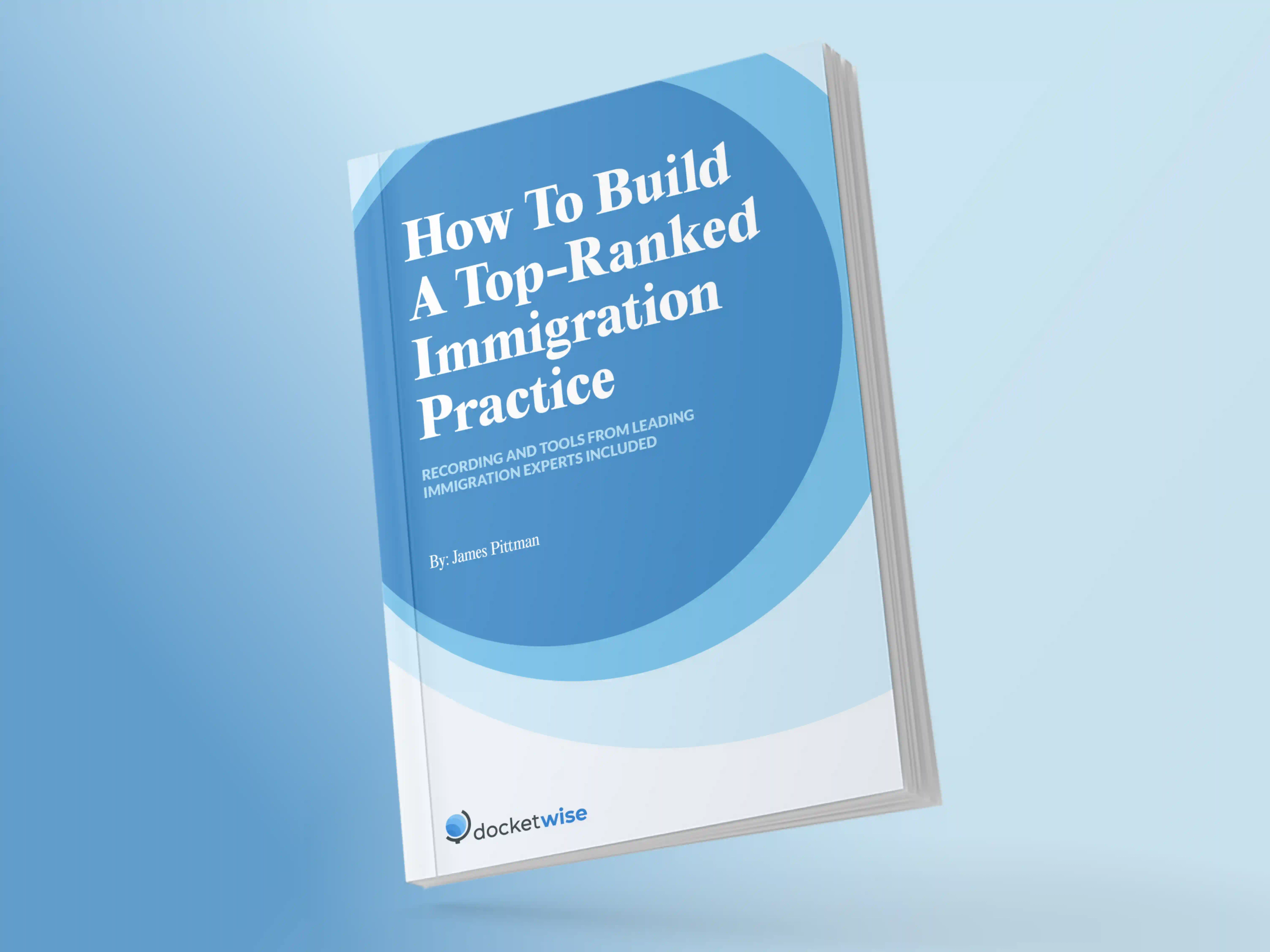Texas Senate Bill 4 (SB4) has become a key topic in the debate over immigration law and enforcement in the United States. Enacted in 2023, SB 4 aims to increase penalties for human smuggling and introduce new state-level offenses for illegal entry and re-entry into Texas.
This bill reflects Texas' attempt to address perceived federal inaction on immigration control, but it also raises significant legal and practical concerns.
Let’s take a look at what it means and its implications.
What is Texas Senate Bill 4?
Texas Senate Bill 4 (SB 4) is a law in Texas that changes how immigration is handled by local and state police. It was created because Texas leaders wanted to do more about immigration, feeling that the federal government wasn't doing enough. In other words, we had a Texas vs federal government situation where Texas took matters into its own hands.
During a recent Immigration Uncovered podcast, Justin Estep, who works with Catholic Charities of Central Texas as a Senior Director of Immigration and Refugee Services, explained that SB 4 is Texas's way of filling what they see as a gap in federal immigration enforcement.
This law is very important because it allows local police to work with federal immigration officers. It has led to a lot of discussions about whether a state should have this much control over immigration, which is usually managed by the federal government.
Overall, SB 4 has a big impact on how immigration laws are enforced in Texas, affecting both the people living there and how local authorities interact with the community.
Background and Context on Senate Bill
Historical Context of Immigration Laws in Texas
Texas has a long history of grappling with immigration issues due to its extensive border with Mexico. Over the years, the state has enacted various laws aimed at addressing immigration and border security concerns. Prior to SB 4, Texas had implemented measures such as increased penalties for human smuggling and cooperation agreements with federal immigration authorities. These efforts were often seen as ways to fill perceived gaps in federal enforcement.
In recent years, frustration with federal immigration policies has grown among Texas legislators. As Justin Estep noted, "The Texas Legislature felt that the federal government wasn't doing their job as far as managing the border." This sentiment set the stage for the introduction of SB 4, a more aggressive approach to state-level immigration enforcement.
Introduction and Passage of SB 4
Date of Introduction and Key Proponents
This Texas immigration bill was introduced during the Texas Legislature's 2023 session. The bill was championed by state lawmakers who argued that stronger state-level immigration laws were necessary due to federal inaction.
The primary proponents of SB 4 included key figures in the Texas Legislature who were vocal about the need for stricter immigration enforcement including Governor Greg Abbott and Lieutenant Dan Patrick.
Legislative Process and Final Approval
The legislative journey was marked by extensive debates on if SB 4 be allowed or not and multiple special sessions.
The first part of the bill, which went into effect in February 2023, enhanced existing human smuggling laws by increasing mandatory minimum punishments. This was followed by the passage of the second part during the fourth special session, which introduced new laws targeting illegal entry and re-entry into Texas from foreign nations. These provisions sparked significant controversy and legal challenges.
Despite the contentious nature of the bill, it ultimately received final approval, which can be seen as a determined push by its proponents to address what they saw as a critical issue. The passage of SB 4 underscored the ongoing debate about the role of state versus federal authority in immigration enforcement.
Main Components of the SB4 Texas Bill
Illegal Entry as a State Crime
The law makes it a state crime for an individual to enter Texas from a foreign nation at any location other than a lawful port of entry. Initially classified as a Class B misdemeanor, the charge escalates to a state jail felony upon subsequent offenses. It also establishes criminal penalties for reentry by certain aliens who have been previously removed from the U.S.
It’s also worth mentioning that the penalties under SB 4 are notably severe:
First Offense: Classified as a Class B misdemeanor, punishable by up to six months in jail.
Subsequent Offenses: Classified as a second-degree felony, which can result in up to 20 years in prison.
Authority Granted to Law Enforcement
SB 4 grants powers to state and local law enforcement agencies in Texas. Officers are authorized to question and arrest anyone they suspect of having entered Texas illegally. If convicted, individuals must be transported to a port of entry by police. In certain cases, charges can be dropped if the individual agrees to return to Mexico, aiming to minimize family separations by turning over migrant families to Border Patrol agents instead of arresting parents.
Comparison with Federal Immigration Laws
SB 4 diverges significantly from federal immigration laws, creating potential conflicts:
Penalties and Enforcement: Federal penalties for illegal entry typically involve deportation rather than lengthy imprisonment, as stipulated by SB 4. This discrepancy highlights the harsher punitive measures Texas seeks to impose compared to federal standards.
Law Enforcement Role: Under federal law, only federal agents can enforce immigration regulations, whereas SB 4 empowers state and local officers, potentially leading to racial profiling and civil rights violations.
On our podcast, Justin Estep mentioned, "This Texas immigration law represents an overreach by the state of Texas, attempting to fill a role that has been federally mandated," illustrating the tension between state and federal jurisdictions over immigration enforcement.
Legal and Political Reactions to Senate Bill 4
Initial Reactions
Senate Bill 4 (SB 4) received strong backing from its proponents, including Texas Governor Greg Abbott and other Texas Republicans. Proponents argued that SB 4 was necessary to address what they perceived as federal inaction on immigration control. They believed the law would help deter illegal immigration and enhance border security. Governor Abbott emphasized that the law would provide Texas with the tools needed to combat human smuggling and illegal entries, framing it as a critical measure for state sovereignty and safety.
On the other hand, the law faced significant opposition from civil rights groups and the federal government. Organizations such as the American Civil Liberties Union (ACLU) and the Texas Civil Rights Project argued that SB 4 was unconstitutional and would lead to racial profiling and the criminalization of immigrant communities.
The U.S. Department of Justice also filed a lawsuit against Texas, arguing that the law usurped federal authority over immigration enforcement. Critics highlighted that the law's provisions would strain relationships between local law enforcement and immigrant communities, fostering a climate of fear and mistrust.
Legal Challenges and Court Rulings
The legal journey of SB 4 has been tumultuous. In early 2024, U.S. District Judge David Ezra blocked the law, stating it threatened the principle that the United States must regulate immigration uniformly. This decision was appealed to the 5th U.S. Circuit Court of Appeals, which reversed Judge Ezra's ruling, allowing the law to take effect temporarily. The case then escalated to the U.S. Supreme Court, which intervened and issued a temporary block on the law while considering the federal government's request to halt its enforcement permanently.
The Texas government argued that SB 4 was a necessary response to federal failures in managing the border effectively. They claimed the law would enhance public safety and reduce illegal immigration. Conversely, the federal government and civil rights groups contended that SB 4 infringed upon federal authority, violated constitutional rights, and posed significant risks of racial discrimination. They stressed that immigration enforcement should remain a federal responsibility to maintain a consistent and lawful approach across the country.
Senate Bill 4 Impact on Communities
Effects on Immigrant Communities
SB 4 has led to increased fear and uncertainty among immigrant communities in Texas. The prospect of local law enforcement having the authority to arrest individuals for illegal entry has created a climate of fear, causing many immigrants to avoid seeking necessary services or engaging with public institutions. This fear is exacerbated by concerns about racial profiling and potential separation from family members.
Enforcement of SB 4 has seen local law enforcement officers conducting more frequent checks and arrests of individuals suspected of illegal entry. Community responses have included protests, legal challenges, and increased advocacy efforts by immigrant rights organizations. For example, community leaders and activists have organized workshops to educate immigrants on their rights and how to protect themselves from potential enforcement actions.
Broader Societal Impacts
SB 4 has placed a significant strain on local law enforcement resources. Police departments have had to allocate more personnel and funding to enforce the new regulations, often at the expense of other critical public safety functions. This diversion of resources has raised concerns among law enforcement officials about their ability to effectively serve and protect their communities.
The implementation of SB 4 has strained relationships between state and federal authorities. The federal government views the law as an overreach into its jurisdiction, leading to legal battles and political tension. This friction complicates cooperation on broader immigration enforcement and policy-making efforts, potentially hindering effective immigration management at both state and national levels.
On our podcast, we also discussed that the situation is quite grim for families. We noted that as things stand, we have a scenario where people are being forced into a situation where they can either cross to Mexico, take their children who may or may not have the authorization to go across, or remain and be charged with a felony.
Impact on Immigration Lawyers
Immigration lawyers in Texas have faced increased workloads and challenges due to SB 4. They have had to provide more legal assistance to individuals affected by the law, including representing clients in court, offering legal advice, and conducting community education sessions. The law has also prompted lawyers to go through a more complex legal landscape and case management difficulties balancing state regulations with federal immigration laws.
If you are a lawyer looking for a way to streamline your process, Docketwise is the solution for all your case management needs.
Controversies and Criticisms
Major Points of Contention
SB 4 has faced significant criticism for allegedly promoting racial profiling and discrimination. Critics argue that the law encourages law enforcement officers to target individuals based on their appearance and ethnicity. This concern was highlighted by Justin Estep in the podcast, who noted that “the only way you can get probable cause without physically seeing them cross the border is some sort of racial profiling.”
There are also major concerns regarding the constitutionality of SB 4. Opponents argue that the law infringes on federal authority over immigration enforcement, violating the Supremacy Clause of the U.S. Constitution. Estep also pointed out that “the Texas law violates the Supremacy Clause” and even added that the whole process is 100% politics and 0% ready to enact the law.
Responses from Key Stakeholders
Civil rights organizations like the ACLU and the Texas Civil Rights Project have been vocal in their opposition to SB 4. They argue that the law is unconstitutional and promotes racial discrimination. The ACLU stated, “SB 4 is a dangerous law that will lead to the harassment and profiling of people of color.”
Public opinion on SB 4 is deeply divided. Supporters view it as a necessary measure for state security, while opponents see it as a violation of civil rights. Media coverage has reflected this divide, with some outlets highlighting the law’s potential benefits for border security and others focusing on its negative impacts on immigrant communities.
Future Implications and Developments
Potential Outcomes of Legal Battles
Ongoing and future court decisions could lead to changes in SB 4. If higher courts rule against the law, it may be modified to address constitutional concerns or be struck down entirely. On our podcast Estep even mentioned he thinks that there is a 50/50 shot that the Court of Appeals will declare it unconstitutional.
And, depending on the outcomes of these legal battles, Texas might see new legislative efforts either to strengthen or repeal SB 4. Other states could also be influenced by these developments, potentially leading to similar laws being proposed or existing ones being challenged.
Long-Term and Real-Life Implications of The New Texas Immigration Bills
Senate Bill 4 (SB 4) in Texas has significantly impacted the state's immigrant communities and law enforcement practices. Here’s a simpler and cohesive summary of its effects:
Increased Fear Among Residents: SB 4 has heightened fear among immigrants in Texas. Many people, including U.S. citizens, feel anxious about engaging in daily activities such as attending school functions or visiting doctors, due to concerns about encountering law enforcement. This fear is also tied to worries about racial profiling, affecting even those with legal status.
Response from Legal and Civil Rights Groups: The bill has triggered strong opposition from civil rights organizations and legal advocates. They argue that SB 4 leads to racial profiling and violates due process rights. In response, these groups have mobilized resources and support to defend the affected communities, including efforts to repeal or amend the law through legal challenges and public advocacy.
Community Activism and Political Mobilization: The law has spurred community activism, with organizers working to make the repeal of SB 4 a key issue in elections. These efforts highlight the importance of community involvement in legislative processes to protect vulnerable populations and maintain their rights.
In one of the first applications of SB4, Texas law enforcement arrested a group of migrants found near the Rio Grande. Among them was José, a migrant who had previously been deported and re-entered the U.S. without authorization. Charged under SB4 for illegal reentry—a new state felony—José faced not only state prosecution but also the unique provision of potentially being ordered to return to Mexico instead of facing continued legal proceedings in Texas.
Conclusion
Senate Bill 4 is a significant change to Texas' immigration law. It aims to strengthen state-level immigration enforcement. This law has sparked debates over concerns about racial profiling and its constitutionality. It also challenges the balance of power between the state and federal governments regarding immigration control.
If you want to listen to the whole podcast and get much deeper into the topic, click here. For more resources and ways to streamline legal documents, visit our blog.
Unlock Your Success as an Immigration Lawyer.
Download Now
About the author

Michael MielloContent Writer
